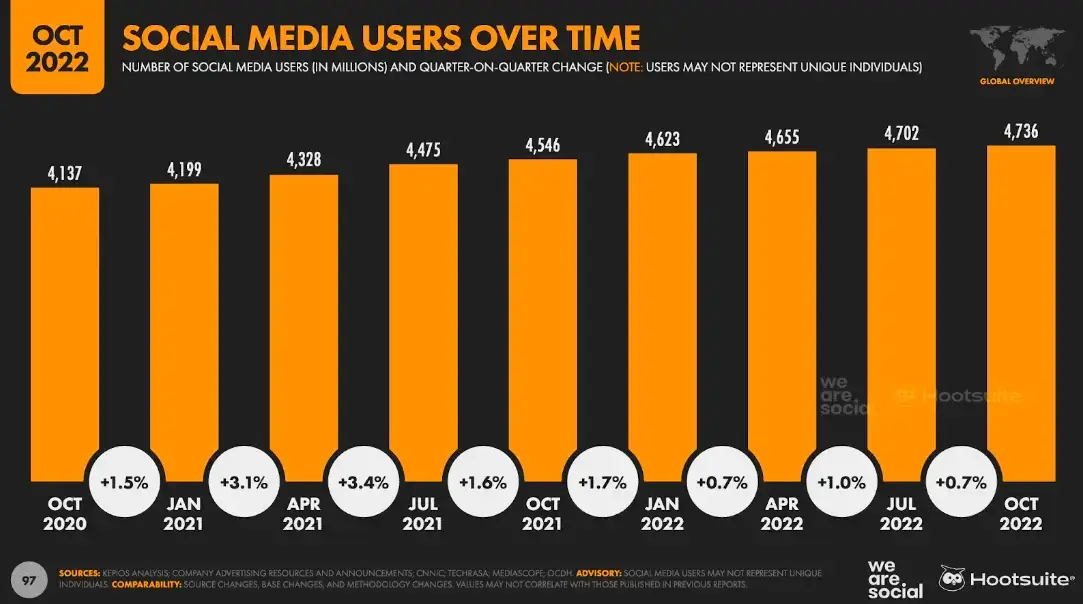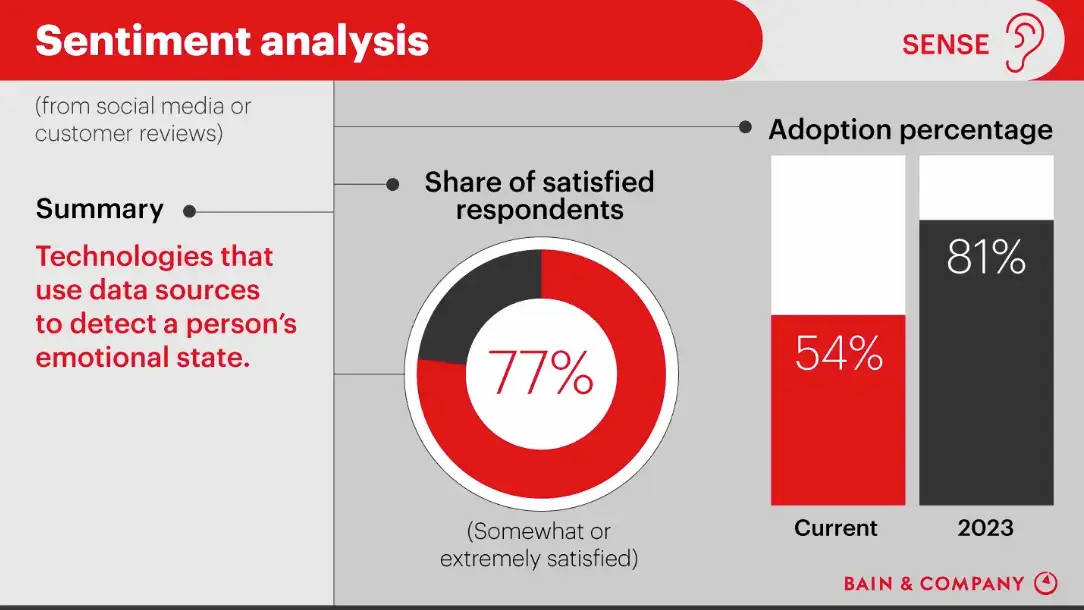In today's fast-paced digital landscape, ignoring social media is like steering a ship with a blindfold. The burgeoning significance of social media in crafting business strategies is not just evident but vital for growth.
According to a report by Hootsuite, over 4.7 billion people are using social media worldwide.

With this large user base, social media represents a vast pool of data and insights for businesses. How can they use it to their business advantage?
How To Leverage Social Media for Business Insights

Image source: freepik
Leveraging social media for business insights involves a strategic approach to gathering, analyzing, and interpreting data from various social platforms.
It can help understand market trends, consumer preferences, brand perception, and competitive dynamics. Here's a guide on how to do it effectively:
-
Gather social media data
The first step to leveraging social media insights is knowing where to look. It's also important to know what insights these platforms can provide.
- Facebook: Offers insights on a broad demographic spectrum, ideal for general market trends.
- Instagram: This platform is key for engaging younger audiences and is particularly effective for lifestyle and visual content.
- LinkedIn: Best for B2B companies; they provide data on professional demographics and industry trends.
- Twitter: Useful for real-time sentiment analysis and trend tracking.
- TikTok: Known for high user engagement levels. Users often spend significant time on the app, offering businesses extended opportunities to capture their attention.
Collecting data from these platforms involves using tools that provide comprehensive analytics about user engagement and behavior. Some of the tools you can use are:
- Google Analytics: Integrates with social platforms to track website traffic from social media.
- Hootsuite: Manages multiple social media accounts, tracks post engagement, and monitors brand mentions.
- Sprout Social: Provides detailed reports on audience engagement, campaign performance, and demographic data.
A survey by Sprout Social indicates that 90 percent of businesses have used these tools to improve their social media strategy.
These methods track basic metrics like likes and shares. On top of those, they also provide deeper insights, such as user sentiment and conversation patterns.
-
Analyze social media insights
Once data is collected, the focus shifts to analysis. This analysis starts with setting clear objectives, such as improving customer engagement, increasing brand awareness, or understanding consumer behavior.
Key performance indicators (KPIs) like engagement rates, reach, follower demographics, and click-through rates are essential.
Businesses need to leverage analytical tools for a comprehensive understanding of these metrics.
The process also involves segmenting data to draw more granular insights and conducting competitive analysis to benchmark against industry standards.
Segmenting data by demographics, content type, or platform can reveal specific patterns and preferences within different audience segments.
Another analysis that businesses shouldn't overlook is sentiment analysis. With it, companies can understand the tone and context of social media mentions, gauging how the public views their brand or products.
This sentiment analysis can be pivotal in managing brand reputation and tailoring communication strategies.
Over half of businesses reported integrating technologies to analyze customer sentiment from reviews and social media. This trend is projected to rise, with expectations that it will surpass 81 percent by 2023.

Lastly, the interpretation of social media data must be contextual and dynamic. It's essential to understand these insights within the broader market and business environment.
Businesses must consider external factors like current events or economic shifts that might impact social media trends.
Regularly updating and reviewing this analysis is vital, given the rapid evolution of social media trends and behaviors. The goal is to distill these insights into actionable strategies to improve campaigns.
-
Apply insights to business strategy
Translating insights into action is where the real growth happens. Marketing strategies can be fine-tuned based on user engagement data, ensuring content is relevant and appealing to the target audience.
Product development can also be guided by customer feedback on social media, aligning offerings more closely with market demand.
Translating insights into actionable strategies is the crux of leveraging social media data for business growth.
In marketing, this involves meticulously fine-tuning strategy based on user engagement data obtained from social media. This data offers a goldmine of what content resonates with the audience, their engagement patterns, and preferences.
In product development, social media insights serve as a direct line to customer feedback and preferences. It's something invaluable in aligning product offerings with market demand.
Some companies use social media feedback to refine their services and product offerings. For example, credit card representatives can gather on what promos consumers want.
From it, they will craft promotions, like waiving annual fees, which will motivate people to get approved for a credit card.
Customer service is another area where social media insights can bring transformative changes.
Customers often turn to social media platforms for service inquiries and complaints. Businesses can understand common customer issues, their expectations, and the effectiveness of their current support channels.
This insight allows companies to tailor their communication and support strategies to meet customer needs better. It enables a more personalized and proactive approach to customer service, enhancing their overall experience with the brand.
Use Social Media for Business Insights

Image source: coolvector on freepik
Social media insights are more than just numbers. They are the guiding stars for businesses navigating the digital space.
The importance of these insights is only set to grow with more sophisticated analytics tools and AI-driven data interpretation.
As businesses adapt to the digital era, those that effectively harness the power of social media insights will succeed. They can enjoy sustained growth and a deeper connection with their audience.


